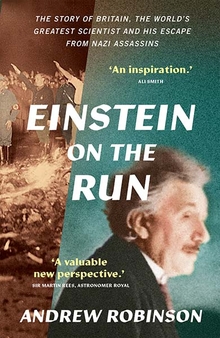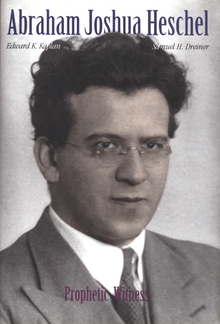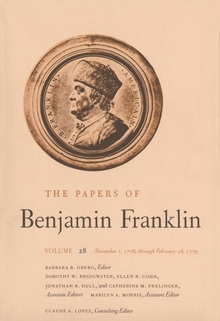Einstein on the Run
WARNING
You are viewing an older version of the Yalebooks website. Please visit out new website with more updated information and a better user experience: https://www.yalebooks.com
How Britain Saved the World's Greatest Scientist
Andrew Robinson
A "highly readable" (Wall Street Journal) account of the role Britain played in Einstein's life—first by inspiring his teenage passion for physics, then by providing refuge from the Nazis
“A vivid look at how the U.K. affected the German-born physicist’s life and thinking.” —Publishers Weekly
“Robinson has that rare knack for presenting a near-encyclopedic volume of historical information, anecdotes and contemporaneous accounts in a thoroughly delightful fashion.”—Ian Randall, Physics World
In autumn 1933, Albert Einstein found himself living alone in an isolated holiday hut in rural England. There, he toiled peacefully at mathematics while occasionally stepping out for walks or to play his violin. But how had Einstein come to abandon his Berlin home and go ‘"on the run"?
In this lively account, Andrew Robinson tells the story of the world’s greatest scientist and Britain for the first time, showing why Britain was the perfect refuge for Einstein from rumored assassination by Nazi agents. Young Einstein’s passion for British physics, epitomized by Newton, had sparked his scientific development around 1900. British astronomers had confirmed his general theory of relativity, making him internationally famous in 1919. Welcomed by the British people, who helped him campaign against Nazi anti-Semitism, he even intended to become a British citizen. So why did Einstein then leave Britain, never to return to Europe?
“A vivid look at how the U.K. affected the German-born physicist’s life and thinking.” —Publishers Weekly
“Robinson has that rare knack for presenting a near-encyclopedic volume of historical information, anecdotes and contemporaneous accounts in a thoroughly delightful fashion.”—Ian Randall, Physics World
In autumn 1933, Albert Einstein found himself living alone in an isolated holiday hut in rural England. There, he toiled peacefully at mathematics while occasionally stepping out for walks or to play his violin. But how had Einstein come to abandon his Berlin home and go ‘"on the run"?
In this lively account, Andrew Robinson tells the story of the world’s greatest scientist and Britain for the first time, showing why Britain was the perfect refuge for Einstein from rumored assassination by Nazi agents. Young Einstein’s passion for British physics, epitomized by Newton, had sparked his scientific development around 1900. British astronomers had confirmed his general theory of relativity, making him internationally famous in 1919. Welcomed by the British people, who helped him campaign against Nazi anti-Semitism, he even intended to become a British citizen. So why did Einstein then leave Britain, never to return to Europe?
Andrew Robinson has written more than twenty-five books including Einstein: A Hundred Years of Relativity, The Last Man Who Knew Everything, and Genius: A Very Short Introduction.
“Robinson’s evocative account of a transitional phase in Einstein’s life offers a valuable new perspective on this great scientist’s personality.”—Martin Rees, Astronomer Royal and former president of the Royal Society
“A well-researched and very readable book about a less well-known period in Einstein’s life – his contact with England and English scientists.”—Jocelyn Bell Burnell, Visiting Professor of Astrophysics, University of Oxford
“I absolutely adore this book – it’s insightful and very well-written. Einstein’s time in and relation to Britain from an Anglophile perspective is a new and valuable contribution. Robinson is also a very fine storyteller.”—Steven Gimbel, author of Einstein: His Space and Times
“The very first study of its kind. It wears its thorough and conscientious scholarship lightly on its sleeve—a splendidly entertaining read.”—Ze’ev Rosenkranz, editor of The Travel Diaries of Albert Einstein
“A compelling tale of Einstein’s reception in Britain. Robinson casts in bold relief important insights into the nature and character of British and German societies in the interwar period.”—Robert Schulmann, Former head of the Einstein Papers Project
“A scholarly and thoroughly entertaining new view of Einstein, as a stateless Anglophile. A compelling read.”—Graham Farmelo, author of The Strangest Man: The Hidden Life of Paul Dirac, Quantum Genius
“A readable and engaging account of the life of one of the greatest scientists of the twentieth century through all the reversals of his childhood and the horrors of 1930s Germany, overcome only by an unbreakable self-confidence, through to his exile in Britain and in America, and all the accolades and achievements (with the sorrows and anxieties which accompanied them) for which he is remembered today.” —Judith Curthoys, Archivist of Christ Church College, University of Oxford
“During the 1930s, more than 60.000 Jews from Central Europe found political refuge in Britain, among them the world-renowned physicist Albert Einstein. Far from living in an ivory tower of science, Einstein was a tireless campaigner for human rights and international understanding. Andrew Robinson’s beautifully written book is a timely reminder of the values of affection, tolerance and justice that transcend national boundaries.“—Daniel Siemens, author of Stormtroopers: A New History of Hitler’s Brownshirts
"A wonderful and absorbing account of Einstein’s journey from Germany to Princeton and the scientific and political struggles of the 1920s and 1930s. This book is an absolute page turner, elegantly written and constantly fascinating; I found it very hard to put down.”—Stephen J. Blundell, author of Magnetism: A Very Short Introduction
“This jewel of a book, to be read by anyone interested in Albert Einstein, his science, his peripatetic existence, his joys and travails. Einstein here is seen as navigating a ship across turbulent seas, often subject to forces beyond his control, yet steering with determination into the storms of scientific inquiry, on a voyage of survival during which he was helped by important friends in England and beyond.”—Diana K. Buchwald, General Editor and Director, The Einstein Papers Project
“A vivid look at how the U.K. affected the German-born physicist’s life and thinking. Readers interested in Einstein will enjoy reading about this lesser-known chapter in his life.” —Publishers Weekly
“Highly readable.” —Andrew Crumey, Wall Street Journal
“Robinson has that rare knack for presenting a near-encyclopedic volume of historical information, anecdotes and contemporaneous accounts in a thoroughly delightful fashion.”—Ian Randall, Physics World
“Robinson has done a marvelous job of pulling new and interesting material out of the Einstein archives . . . I suspect that even readers who have devoured many books about Einstein and are already familiar with his interactions with the English . . . will find much to learn and enjoy.”—Naomi Pasachoff, Metascience Journal
“[A] sparkling study.”—Barbara Kiser, Nature
“The book is very well written and it is a pleasure to read. . . . A great advantage of the book is the photographs and drawings included.”—Krzysztof Ciesielski, MathSciNet
ISBN: 9780300254990
Publication Date: March 9, 2021
Publication Date: March 9, 2021
376 pages, 5 1/2 x 8 1/2
33 b/w illus.
33 b/w illus.








